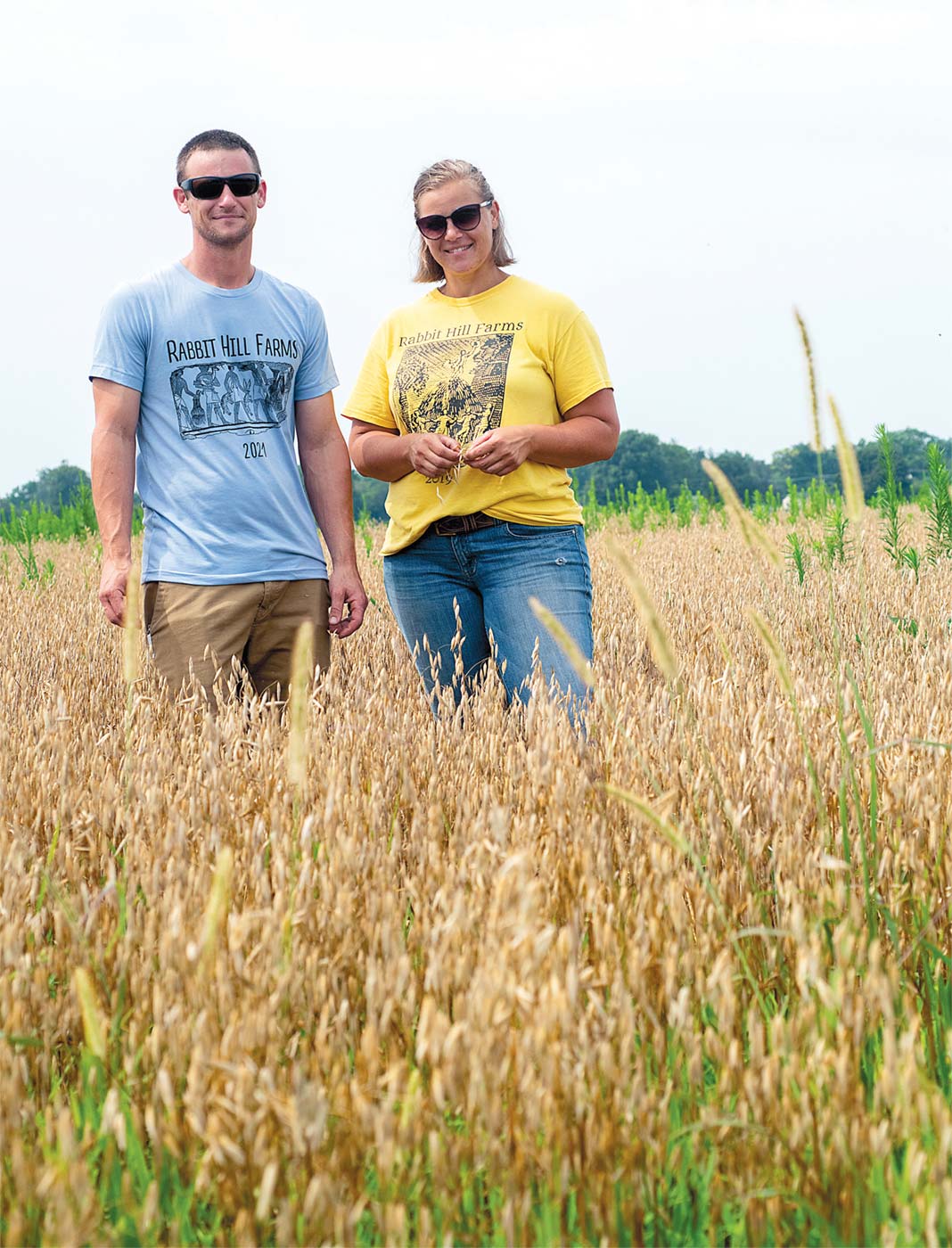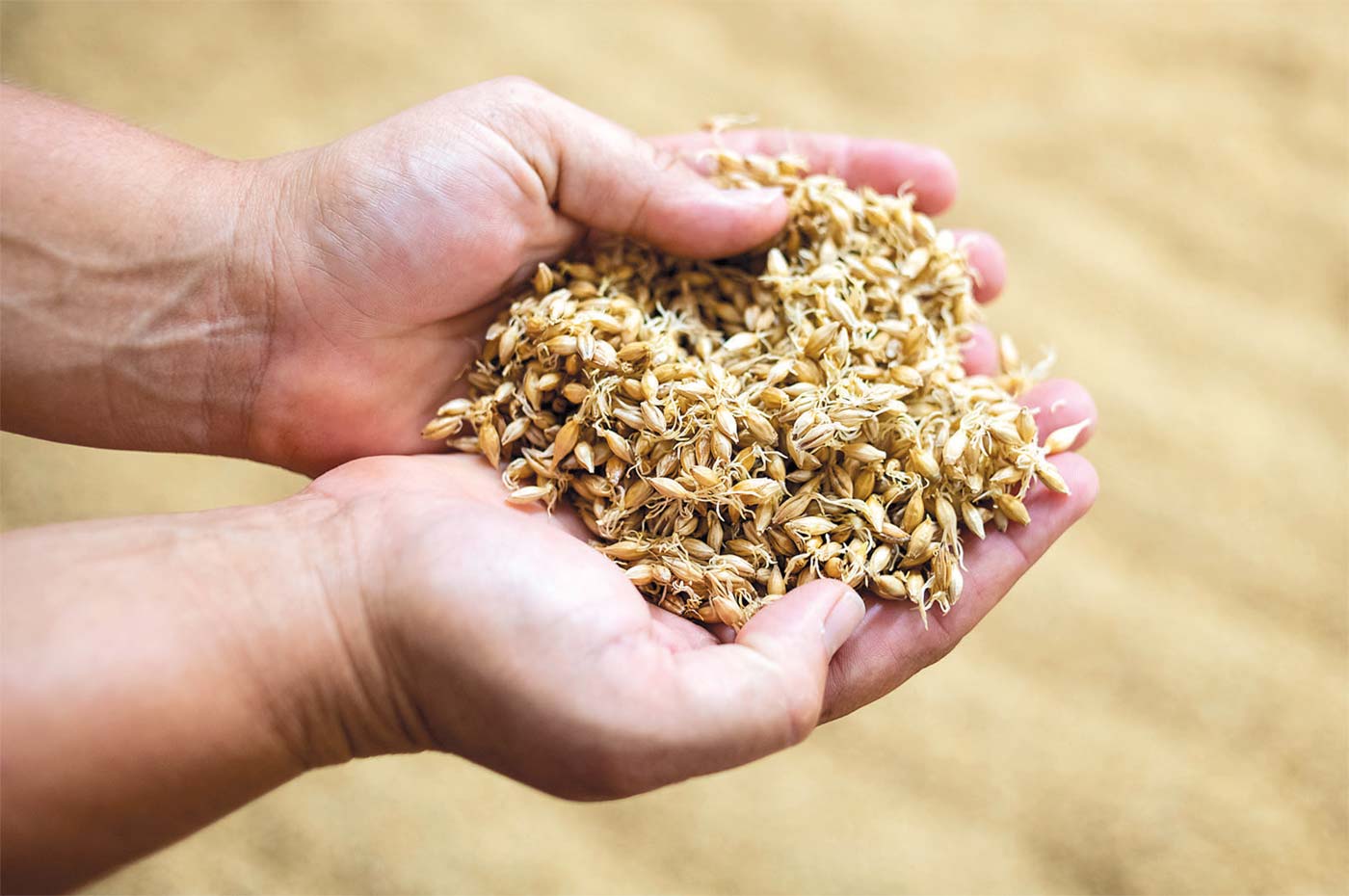Rabbit Hill Farms - Good Beer Starts with Quality Barley and Good People

Good craft beer and spirits start with quality barley and malt. In New Jersey, many producers believe it also starts with good people.
When fifth-generation farmers and sister-brother duo Hillary Barile and Blair Bakker of Rabbit Hill Farms in Shiloh saw a downturn in potato demand, they did what most successful farmers do: They diversified. They did not realize that the decision to grow sod and, later, barley would eventually lead to their becoming New Jersey’s only local malt house. Nor did they know what a positive impact they would have on the brewers and distillers they work with, as well as on the larger local supply chain.
The two began their journey towards growing malt grain back in 2002, when the Atkins Diet took off and people stopped eating potatoes. “It was catastrophic in terms of us being able to move our crop,” Barile says. And at the time, “it didn’t seem that people were differentiating between a local and a non-local product.” The family, all of whom live as well as work on the farm, began farming some sod (a garden-supply product) as well, in order to diversify its offerings.
Hillary, who runs the farm along with her brother Blair, her father, Abe Bakker, and uncle, Robert Reed, had gone to Dartmouth College and studied chemistry prior to returning to her family’s farm a few years after graduation. “I was never compelled by my family to come back to the business,” she says. “I decided to work hard for the family farm and legacy instead of working for someone else.”
Blair was a passionate homebrewer, and he and Hillary had often discussed developing an estate brewery. As an experiment, in 2015, they started planting barley and investigating the malting process, which in its traditional forms had nearly died out in the United States. “It took us that long to give up on farming potatoes because we had been doing it for generations,” Barile says.
Then, she explains, “we got so interested in malting that it became something we thought was a business on its own.” Malting grain is a controlled germination process that develops beneficial enzymes which brewers need to make beer. (These enzymes can be developed in other grains but occur most plentifully in barley.) Large commercial breweries have techniques to malt more quickly and cheaply, sacrificing some flavor as a tradeoff, and often use as little of the comparatively expensive barley malt as possible, substituting with “adjuncts” like rice.
At Rabbit Hill, the malting process takes a lengthy seven to nine days. The grain is first steeped in water for two days to initiate the process. After the steeping, Rabbit Hill Farms does four to six days of “floor germination,” depending on the style of malt. This is a traditional artisanal process in which the grain is spread out in an area with a controlled temperature and periodically raked, ensuring a slow germination. The specific type of barley Rabbit Hill uses is what grows best in southern Jersey, and the result is a better, deeper taste.
For the first couple of years, the family had to “go out and knock on brewery doors and try to convince people that craft malt is an alternative that exists,” Barile says. They went so far as to brew sample beers for the sales calls, so brewers could get an idea of what the malt tasted like. (Barile’s favorite beer is a Saison, a classic farmhouse ale, which seems appropriate.) They also needed to convince people that their products were worth the higher price.

“PEOPLE REALLY CARE THAT WHAT’S IN THEIR GLASS IS LOCAL AND THAT WE SHOULD KEEP GOING.”
Brewers and distillers have positively responded, and Rabbit Hill Farms now supplies at least 25 in New Jersey. Jersey Spirits Distilling in Fairfield, Asbury Park Distilling in Asbury Park, Tonewood Brewing in Oaklyn, Kane Brewing in Ocean Township, and Screamin’ Hill Farm Brewery in Cream Ridge are just a few of Rabbit Hill Farms’ growing customer list.
“The last few years have been a trial for us just keeping up with demand,” Barile says. “Our quality has improved, and we continue to look to make improvements. You have to be ‘local and exceptional,’ you can’t be ‘local and mediocre.’”
Bill Tambussi, the master distiller at Asbury Park Distilling, concurs. Tambussi has been using Rabbit Hill Farms corn, rye, and malted barley exclusively for its bourbon and for its recently distilled single-malt whiskey. “I had no idea there were any maltsters in New Jersey so to actually find one was amazing” Tambussi says. “Without having the best grain and malt, we would not be where we are today.”
Eli Facchinei, head brewer and founder of Tonewood Brewing, who has been working with Barile and Rabbit Hill Farms since launching his operation five years ago, agrees.
“As part of our business model, we wanted to put a Garden State product in bars and stores across the state, and working with Hillary has allowed us to do that,” he says. He uses Rabbit Hill malted barley in many of his Saison and farmhouse brews, and crafts Tonewood’s signature pale ale, Freshies, with Rabbit Hill malted wheat, a heritage red wheat that has been growing on the farm’s property for 100 years. “Once we open our new facility in Barrington, we will devote all beer-making in Oaklyn to using 100% Rabbit Hill malts.”
Craft malting in the United States is a trend that has started only in the past decade in tandem with the resurgence of craft brewing. Rabbit Hill Farms and others have been instrumental in figuring out the lost art, building machinery such as their first kiln, developing techniques on an ad hoc basis, and sharing that information with others. Rabbit Hill also malts for small brewers and distillers who grow their own grain, which puts custom malting within economic reach for some small businesses.
Barile says she also relishes opportunities to connect her malt customers with other suppliers. In one case, she helped client John Granata, master distiller at Jersey Spirits Distilling, find the horseradish for his limited- release horseradish vodka. “I don’t see myself as a consultant but as a connector in the supply chain,” she says. “Being a small business is hard enough, so my philosophy is to be a part of the community.”
Facchinei also acknowledges Barile’s knack for developing community support networks. “She even connected us with a farmer local to her who takes 20,000 pounds of spent grain a week from us to feed their livestock.”

The year 2020 tested the farm’s business model in ways that give Barile great optimism for the future. Rabbit Hill Farms had expected sales to decrease during the pandemic year, but business continued to grow, though more slowly than usual.
“To me that was a signal that people really care that what’s in their glass is local and that we should keep going,” Barile says. She adds that breweries, farm stands, and makers “were so nimble” and that these and other small local businesses found ways to adapt quickly when larger ones could not.
“I hope this is a lesson that people learned—really learned. If you continue to support these small local supply chains, they will be there when you need them.”
Lovers of great local potables should hope the same and hope also that the children currently growing up at Rabbit Hill will make a sixth generation of farmers. Family farms, like craft malting, are a tradition that deserves a comeback.
Follow Rabbit Hill Farms on Instagram at @rabbit_hill_malthouse




